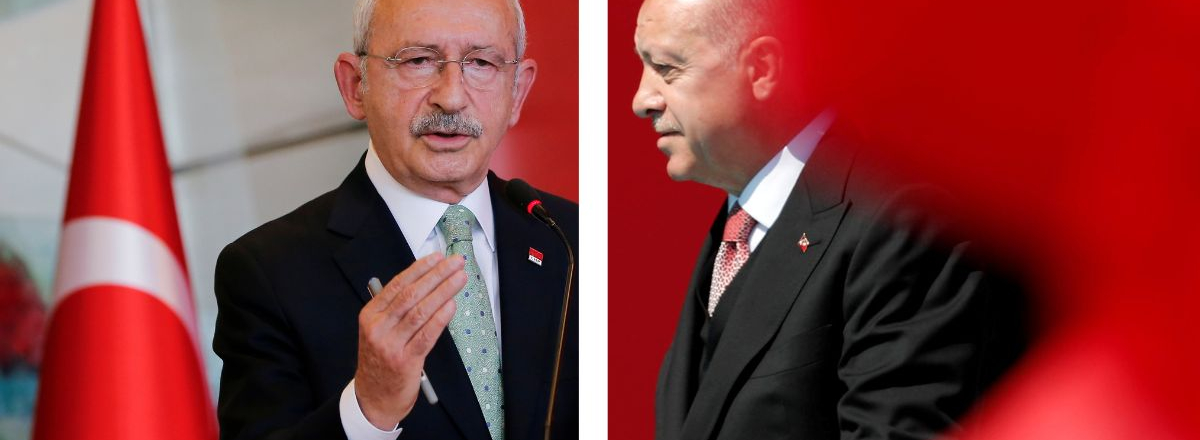
Abstract
Türkiye is about to hold one of the most important parliamentary and presidential elections in its history on May 14, 2023. The main economic policies offered in the election manifestos of the People’s Alliance, led by incumbent President Recep Tayyip Erdoğan’s Justice and Development Party (AKP), and the Nation Alliance, led by Kemal Kılıçdaroğlu’s Republican People’s Party (CHP), are crucial to address the ongoing economic problems in Türkiye. The winner will face significant economic challenges, including large trade and current account deficits, rising prices, and financial pressures due to budget expenditures. It is notable that the two political alliances offer different strategies to address these persistent economic problems.
Introduction
The People’s Alliance and the Nation Alliance will fight for a majority in Parliament on May 14. The next president will be elected either in the first round on the same day or in the second round on May 28. The candidate who receives 50% plus one vote will become president in the first round. If both fail, the candidate who receives the majority of votes in the second round becomes president. In the event that Kılıçdaroğlu wins the election, structural changes are expected in the existing economic, social and judicial systems. If Erdoğan is re-elected, we can assume that current programs and policies will remain largely unchanged. It is imperative to note that this election is taking place in a critical economic climate in Türkiye.
Türkiye’s contemporary economic issues
Currently, Türkiye faces economic problems stemming from large trade and current account deficits. In 2022, the trade deficit increased to one of the highest in history, reaching $100 billion, and in the first three months of 2023 it increased to $35 billion. As a matter of fact, external factors are not promising for Türkiye’s sustainable trade balance. The growth rates of Türkiye’s main export partners, especially EU countries, the United Kingdom and the United States, where more than 40% of Türkiye’s exports go, do not promise strong economic performance in the current year and in the medium term, according to the April 2023 World Economic Outlook forecasts. The rising cost of global prices, especially energy prices, is an important indicator of Türkiye’s import costs. While sanctions on Russian oil prices can lower energy costs by enforcing a $60 price cap, the decision by OPEC to cut oil production is putting pressure on energy prices. The combined effect of these factors exacerbates Türkiye’s already high trade and current account deficits. In light of these challenges, it is imperative that the winner takes decisive action to address Türkiye’s trade and current account deficits, including implementing measures to increase exports and reduce imports, by diversifying export markets, reducing Türkiye’s dependence on energy imports, and maintaining its competitiveness.
In 2023, Türkiye is under financial pressure due to rising budget expenditures. Türkiye was recently hit by an earthquake and the total cost of it is estimated as $103.6 billion, according to the report of the Presidency of Strategy and Budget. Although the reconstruction of damaged buildings in the 11 provinces cannot be completed in a year, most of the estimated costs incurred this year will put pressure on the budget. In addition, promises made during the election campaigns will contribute to unplanned budget expenditures. At the end of March, the budget deficit was already 42% of the expected deficit for the entire year. It is clear that whoever wins the election will have to address the problems related to the growing budget deficit and financial pressures.
Türkiye has been struggling with continuously rising prices since 2021. Türkiye’s central bank sets monetary policy to keep interest rates low without adjusting them for inflation. However, low interest rates with high inflation led to a flight from the Turkish lira and increasing dollarization. The Turkish lira has depreciated in real terms since 2014 until a foreign currency-indexed Turkish lira deposit account was established in late 2021. In 2022 and 2023, central bank intervention by reducing international reserves and increasing the cost of holding foreign currency through certain measures helped keep the value of the Turkish lira relatively stable. However, it appears that international reserves excluding gold, which amounted to $62.6 billion in March, will not be sufficient to prevent further depreciation of the Turkish lira, and the Central Bank of the Republic of Türkiye (CBRT) has begun to liquidate gold reserves. Therefore, the new government must first maintain confidence in the market and attract foreign funds to maintain the value of the currency and the stability of the financial markets
The Nation Alliance’s proposed solutions to the current economic challenges
The Nation Alliance, which is composed of six parties, announced its joint program on January 30, 2023. The strategy paper contains a series of comprehensive proposals that include radical changes in monetary and fiscal policy and in the institutional structure. When in power, they intend to curtail presidential power and reintroduce the strengthened parliamentary system. They indicate that their policies will be based on increasing transparency and accountability of government activities. One of the most important changes relates to maintaining the independence and transparency of the CBRT and strengthening the institutional structure of the Financial Stability Committee to improve macro-level financial stability. The CBRT will become an independent body that ensures price and financial stability. In addition, institutions that are seen as non-transparent, such as the Türkiye Wealth Fund, will be closed, and institutions that are seen as interfering with central bank policy, such as the Price Stability Fund, will be abolished. According to the joint program of the Nation Alliance, the Economic and Social Council will be more functional, a strategy and planning organisation will be established, the Treasury will be separated from the Ministry of Finance, and the State Institute of Statistics will be more independent and reliable.
In addition, they proposed ending interference in the allocation of public bank funds for concessional lending to the private sector. They want to review the exchange rate system, focusing on improving its flexibility and effectiveness, and eliminate the arbitrary use of international reserves to support the general monetary policy framework.
The Nation Alliance presents a proposal for strengthening fiscal discipline that includes introduction of a “Fiscal Rule”. The effectiveness of the Planning and Budget Commission of the Turkish Grand National Assembly and the Court of Accounts will be increased to monitor compliance with fiscal rules. In addition, all public expenditures will be subject to a comprehensive review process.
They will focus on projects such as the development of agricultural irrigation projects and the protection of nature and the environment, and not on “rent-seeking projects” as they are called in the manifesto, such as the “Canal Istanbul”.
The People’s Alliance’s proposed solutions to the current economic challenges
The main fiscal and monetary policies of the People’s Alliance are outlined in the AKP’s election manifesto. The manifesto highlights the efficient functioning of the presidential government system by emphasizing that this system has played a key role in facilitating the decision-making process, eliminating the political instability that used to exist between the prime minister and the president, and improving the implementation time of policies in Türkiye.
For the People’s Alliance, the economic challenges Türkiye is currently facing range from currency attacks, the pandemic, natural disasters, global inflation, and migration-related crises. In order to tackle the problem of inflation, the manifesto emphasizes the need for coordination among various stakeholders, including the Price Stability Committee and the Food and Agricultural Products Market Monitoring and Evaluation Committee. Social housing projects can help reduce rental costs, while efforts to reduce energy dependence can lower energy costs and prices. In addition, programs and policies to increase agricultural production and productivity, and improve logistics services, will help alleviate the problem of rising food prices. Furthermore, the manifesto highlights the importance of strengthening the financial system by promoting participation financing that can achieve the $2.1 trillion “Halal Economy”. The Istanbul Finance Center project makes Istanbul a leading centre for global finance and international trade, creating a robust and multidimensional ecosystem for financial services. To ensure the sustainability of public sector finances in the face of increased spending as a result of the earthquake disaster, priority will be given to increasing efficiency and savings in the public sector, increasing privatization, simplifying the tax system and reducing informality.
Conclusion
Whoever wins the elections will face important economic and financial problems that must be solved in the short term. There are similarities and differences in the two allies’ approaches to these problems. The Nation Alliance brings a more disciplined approach to public administration with the application of fiscal rules. The People’s Alliance also emphasizes the importance of fiscal discipline while accentuating further promotion of the private sector through various means. The Nation Alliance places greater emphasis on the central bank’s autonomy in monetary policy, while the People’s Alliance does not prioritize the central bank in this regard. The Nation Alliance focuses on disciplining public institutions, strengthening governance and increasing transparency, while the People’s Alliance places more emphasis on practical solutions to pressing needs.
Whoever comes to power must solve the acute economic and financial problems as soon as possible. Türkiye deserves to be among the countries that have overcome the structural challenges and left the middle-income trap behind. The winner of the upcoming elections will bear a great responsibility for securing a better future for the country



